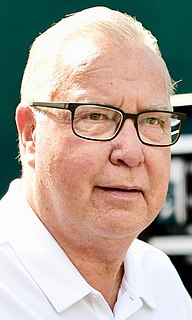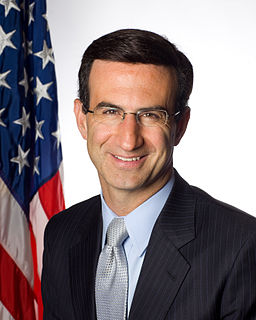A Quote by Daniel Levitin
If you're making a bunch of little decisions - like, do I read this email now or later? Do I file it? Do I forward it? Do I have to get more information? Do I put it in the spam folder? - that's a handful of decisions right there, and you haven't done anything meaningful. It puts us into a brain state of decision fatigue.
Related Quotes
Collectivism takes on many guises and seldom uses its own real name. Words like 'community' and 'social' soothe us into thinking that collectivist decision-making is somehow higher and nobler than individual or 'selfish' decision-making. But the cold fact is that communities do not make decisions. Individuals who claim to speak for the community impose their decisions on us all.
Actually, I can't take credit for any of my decisions. I noticed one day that all my decisions were making themselves, and always at the right time. I haven't had to make one decision since then. They are always made for me, and they come from the wisdom that is in us all. I trust that wisdom completely. That trust itself was a decision made for me as inquiry cleared my mind. No decision, no fear.
No decision-making system is going to guarantee corporate success. The strategic decisions that corporations have to make are of mind-numbing complexity. But we know that the more power you give a single individual in the face of complexity and uncertainty, the more likely it is that bad decisions will get made.
Decision-making is difficult because, by its nature, it involves uncertainty. If there was no uncertainty, decisions would be easy! The uncertainty exists because we don't know the future, we don't know if the decision we make will lead to the best possible outcome. Cognitive science has taught us that relying on our gut or intuition often leads to bad decisions, particularly in cases where statistical information is available. Our guts and our brains didn't evolve to deal with probabilistic thinking.
What causes adolescents to rebel is not the assertion of authority but the arbitrary use of power, with little explanation of therules and no involvement in decision-making. . . . Involving the adolescent in decisions doesn't mean that you are giving up your authority. It means acknowledging that the teenager is growing up and has the right to participate in decisions that affect his or her life.
Any individual decisions can be badly thought through, and yet be successful, or exceedingly well thought through, but be unsuccessful, because the recognized possibility of failure in fact occurs. But over time, more thoughtful decision-making will lead to better overall results, and more thoughtful decision-making can be encouraged by evaluating decisions on how well they were made rather than on outcome.
The decisions you make today matter. Every decision points your life in the direction you are about to travel. No decision is an isolated choice. It’s a chain of events. If you choose wisely, your future will reflect that. But if you don’t choose wisely, the decisions you make now will take you to places you don’t want to be later.



































